Looking Back on Q Processing 2 The Professional
At the tail-end of the Sidama Bensa harvest season early this February 2024, we had the chance to live a week in the day-to-day of specialty coffee processing workers at Daye Bensa Coffee’s Gatta Farm — as necessitated by the Coffee Quality Institute’s Q Processing 2: The Professional course (shorthand, QP2).
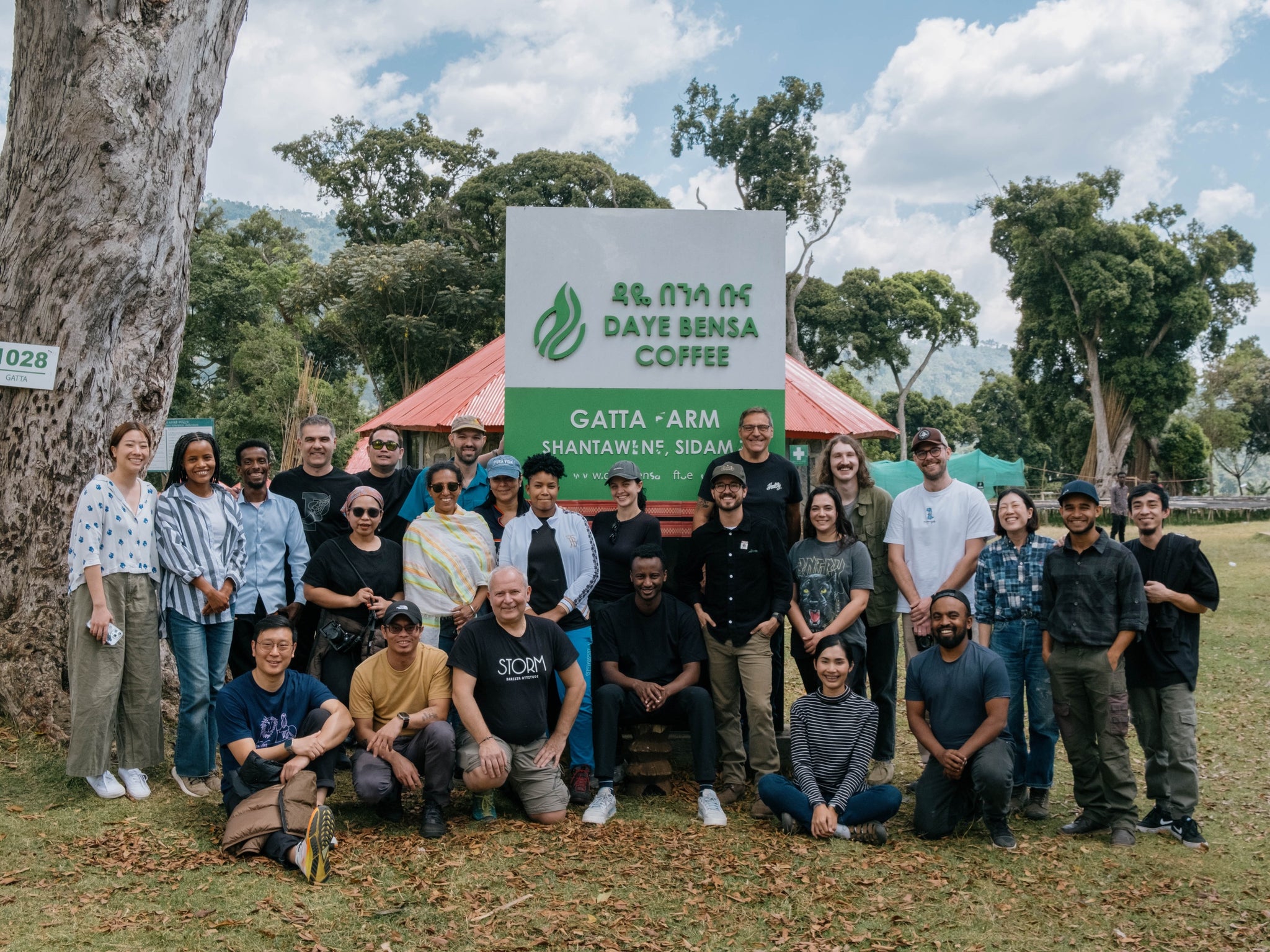
As in 2023’s first run, we had the privilege of sharing this uniquely immersive, substantial, and wonderful coffee-fueled travel experience with a diverse set of coffee friends engaged in different roles across our specialty coffee value chain.
Having planned months ahead, everyone finally flew in from various countries —Jordan, the Philippines, Switzerland, the USA, Venezuela, Ukraine, Uganda, Thailand, Spain, and India — to meet us in Addis Ababa and onward to southern Ethiopia’s highlands for our main agenda.
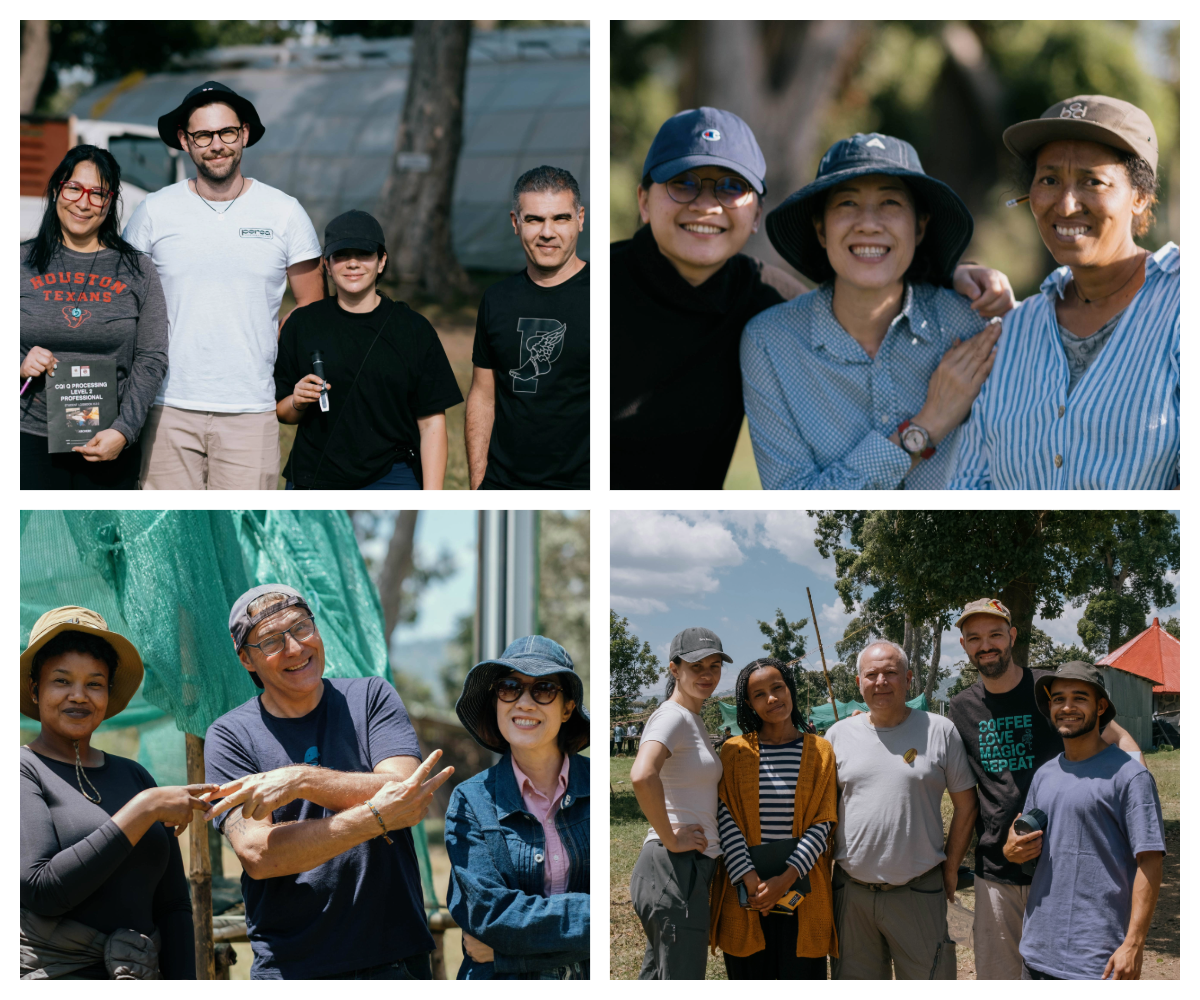
We got our feet wet and our hands dirty in earnest attempts to craft various cup profiles in the effort to master the ins and outs of post-harvest processing. Amid the joyous atmosphere of shared stories, laughter, and meals, we deemed unexpected discomforts worth it as we pushed through situational difficulties, and focused on our common aim. 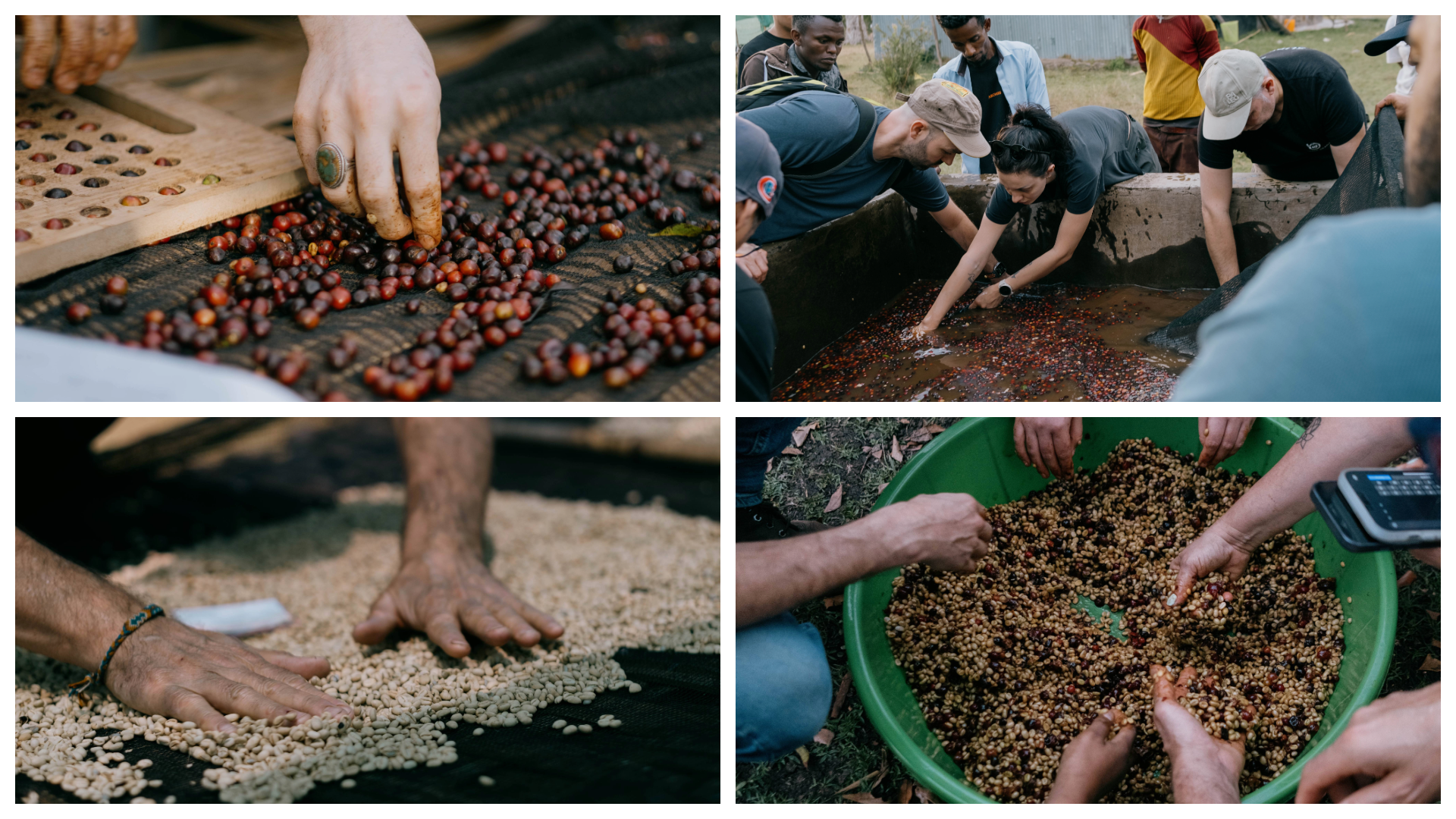
That was to comprehend the ways to create and, further on, become capable of improving specialty coffee quality for the benefit of the communities that rely on it as their primary source of livelihood.
Dukamo Coffee: Glocal Gateway of Specialty Coffee Culture
Upon arriving, our host Kenean Dukamo — 2nd generation leader at Daye Bensa Coffee and 2022 Ethiopia Cup of Excellence 1st Runner up — warmly welcomed us over dinner at our Addis Ababa hotel.
The next day, three-quarters of the way from Addis Ababa to Gatta, we made a much-needed caffeine stop at the Hawassa City branch of Dukamo Coffee. As the family’s specialty coffee cafe and hospitality brand, it is their main channel for promoting greater interest in and consumption of Ethiopian-grown and roasted coffees among their local community, especially the youth. 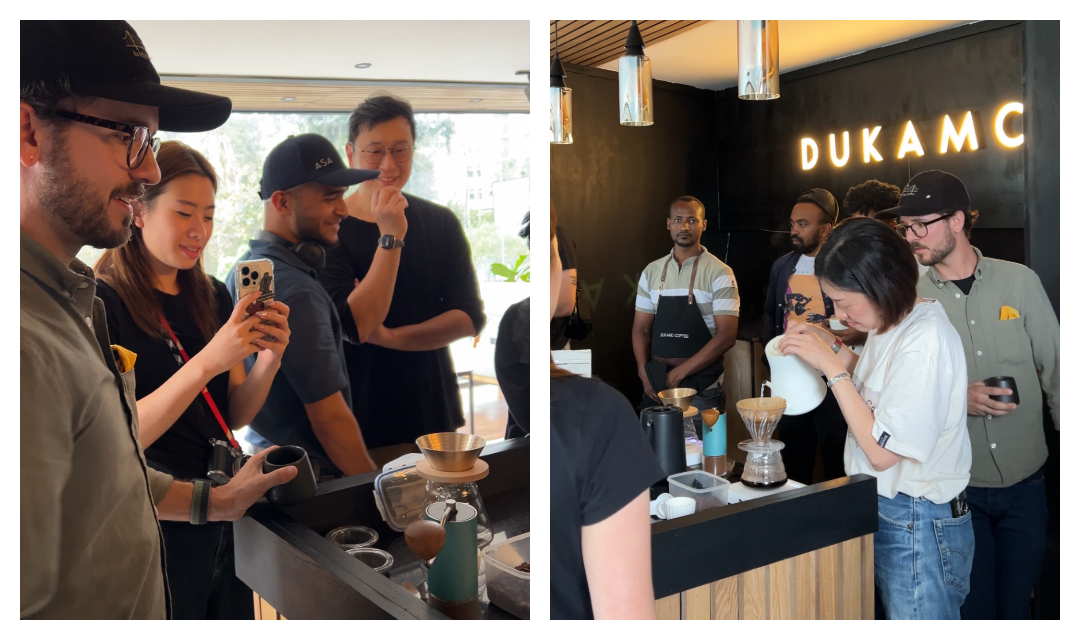
This was a clear, concrete, and inspiring illustration of how Kenean is proactively following through on his advocacy to spur continuous, sustainable growth of Ethiopian specialty coffee as an industry from the grassroots level by maximizing the means available to him and his family. He first told us of this advocacy at our Daye Bensa Coffee Producer’s Talk in 2023.
Our visit to Dukamo Coffee had indeed given us a taste of the contemporary local specialty coffee cafe culture flourishing in Ethiopia. 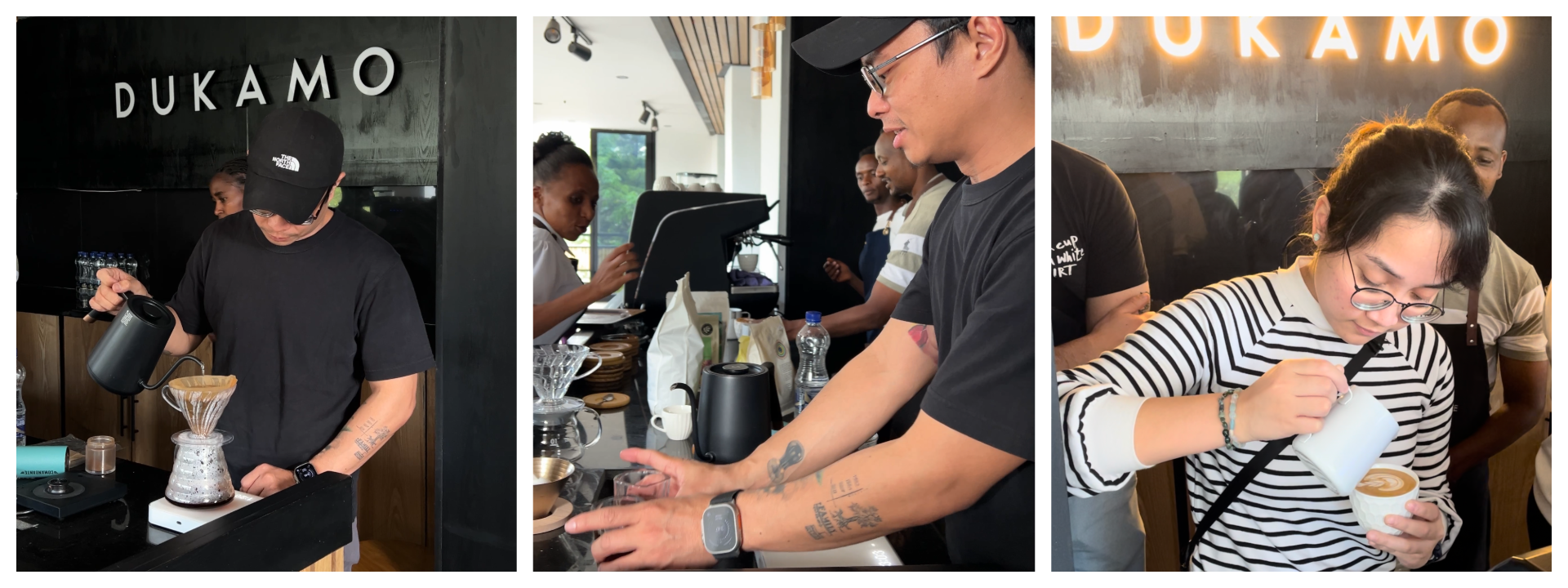
At the same time, our Head of Education Dave Peralta brewing Daye Bensa lots Hamasho Village and Bombe Village from different roasters around the world drove home the power of high-quality specialty coffee (identified with a particular origin) to facilitate intercultural awareness and exchange that could — as it has in the case of Daye Bensa Coffee — translate to materially improving living conditions of the farming families that cultivate it.
Mental & Manual Heavy-lifting, Q Processing Pros in the Making
CQI Instructor Bryce Castleton led the course with the assistance of CQI-certified colleagues Fern Panravee from Bangkok, Thailand, and Kyu Jung from Seoul, Korea, along with our Head of Education, Dave Peralta, volunteer program assistant Michael Gono, and Marketing duo, David Disuanco and Patricia Perello.
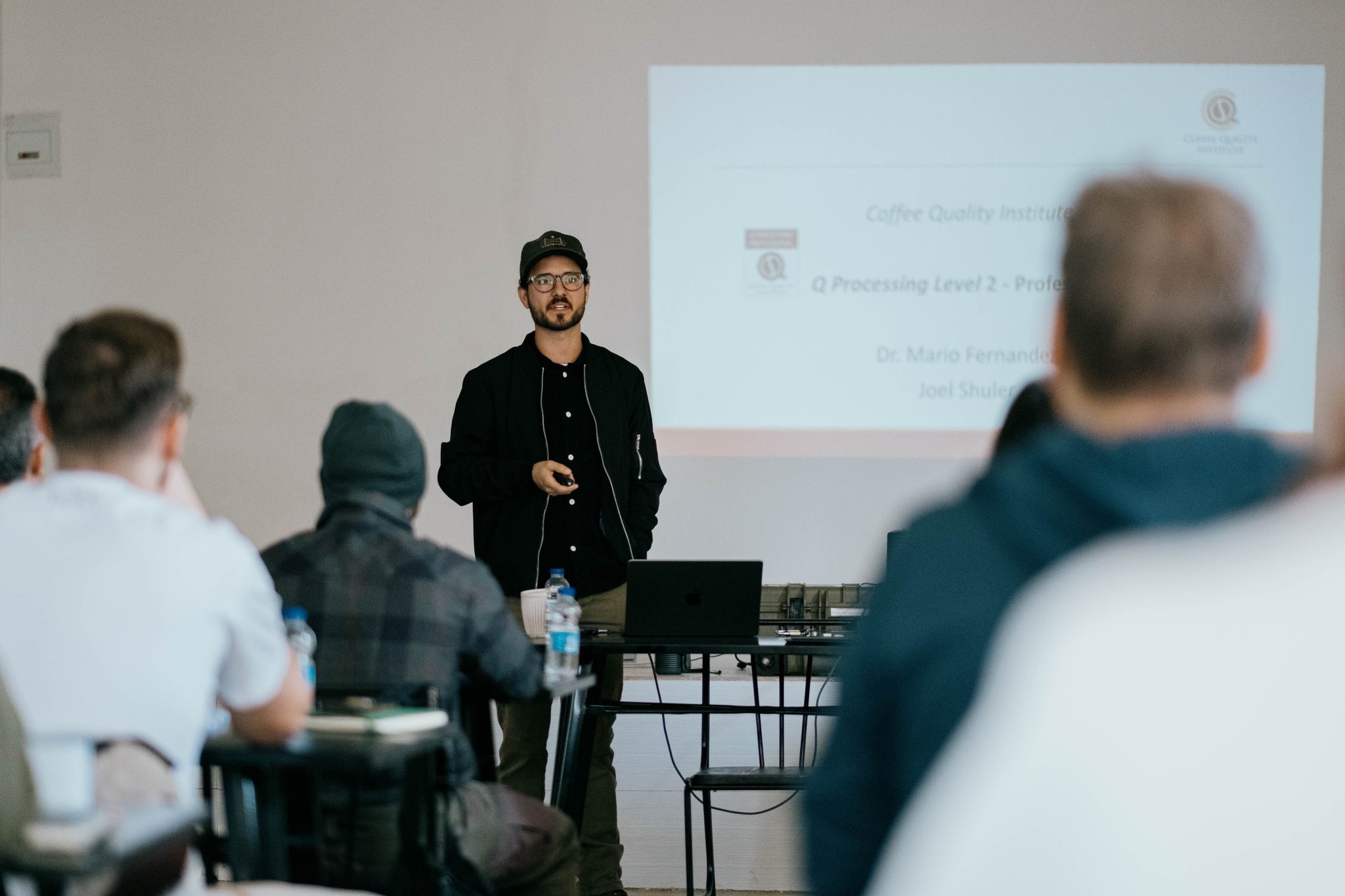
In the Classroom
Throughout the six-day program, our Q Processing Professional aspirants took part in accessibly delivered classroom lectures where their understanding of post-harvest processing fundamentals was established, refreshed, and further illuminated. 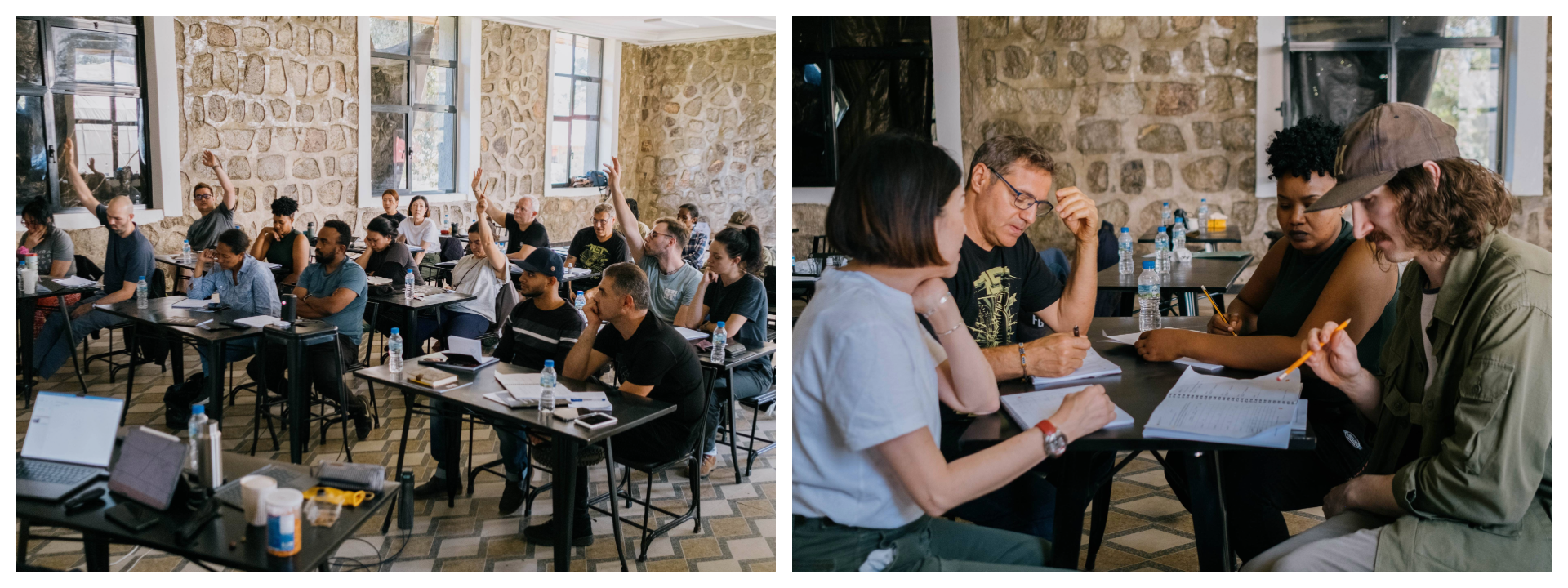 Theories were always expounded within the context of optimizing available resources and the prevailing conditions at the farm level — the weather, available coffee cherries' ripeness for example, physical space, manpower, and equipment, underscoring the perennial objective of sustainably producing lots that will be recognized and appropriately rewarded by the consuming markets.
Theories were always expounded within the context of optimizing available resources and the prevailing conditions at the farm level — the weather, available coffee cherries' ripeness for example, physical space, manpower, and equipment, underscoring the perennial objective of sustainably producing lots that will be recognized and appropriately rewarded by the consuming markets.
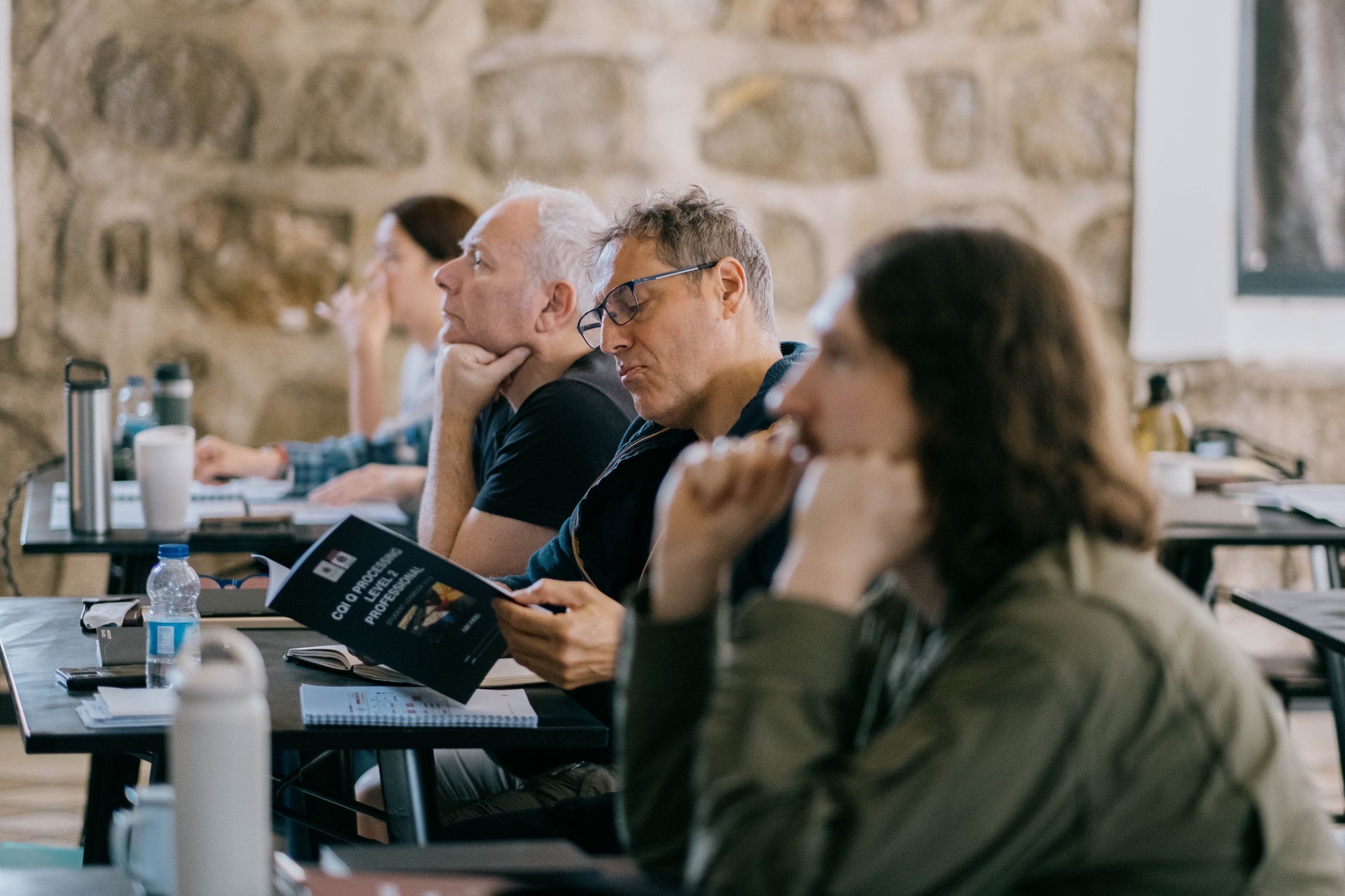
Apart from honing the technical acumen to create good quality specialty coffee despite potentially non-ideal circumstances, the emphasis on sharpening a Q Processing Professional’s ability to make sound business decisions around the most suitable processing methods for particular harvests, considering the entrepreneurial aspects of specialty coffee production — like optimizing yields and achieving cost efficiencies — more deeply drove the real-world relevance of QP2 home. 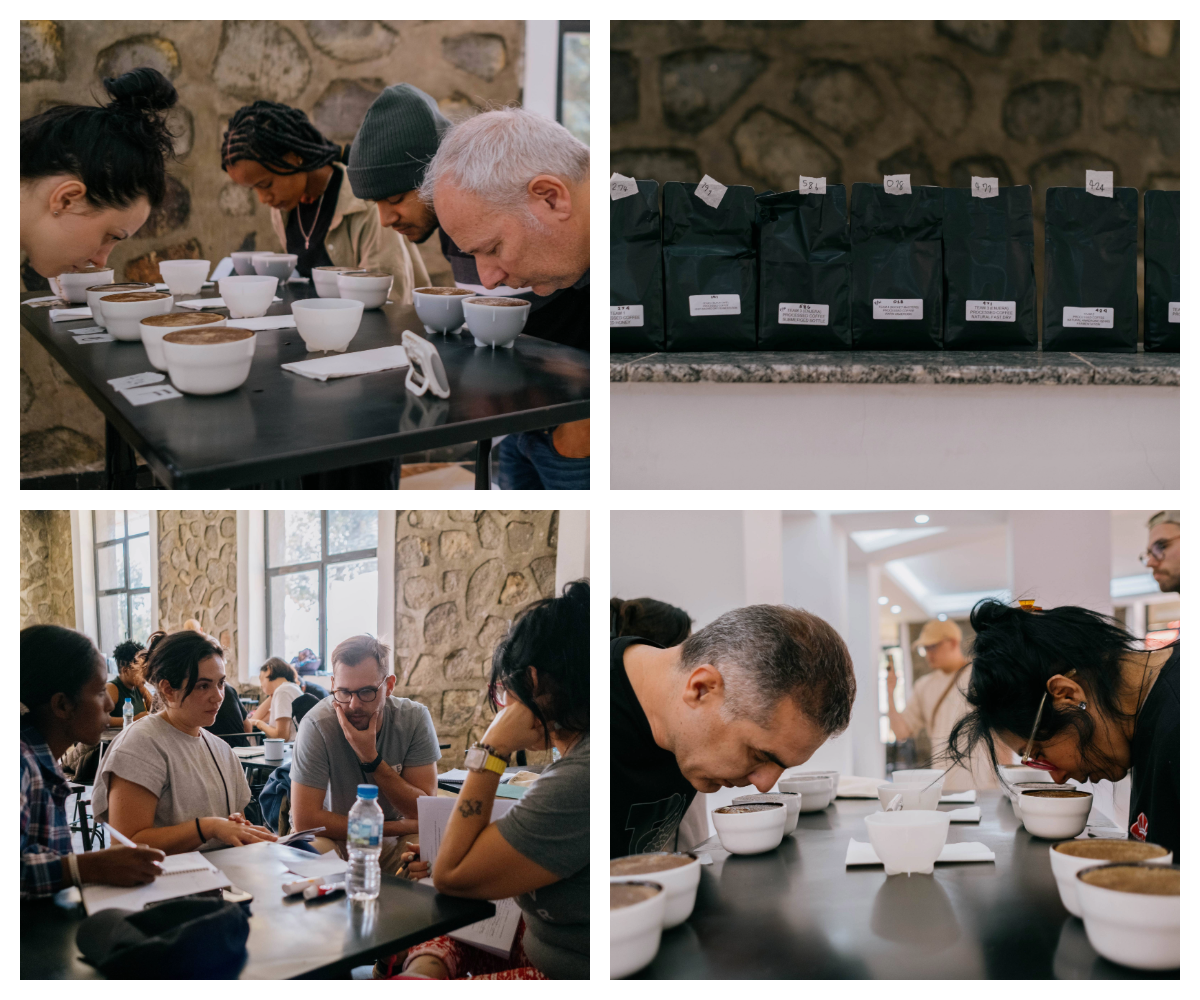
Gatta's Great Outdoors
Admittedly, the most fun parts of learning happened in the field. Working in four groups — lightheartedly self-styled as Bensa Thunder, Double Trouble, Absyinnian, and Back Pain — they implemented four to five unique post-harvest processing techniques for fermentation and drying as innovations on the main natural, honey, and washed methods.
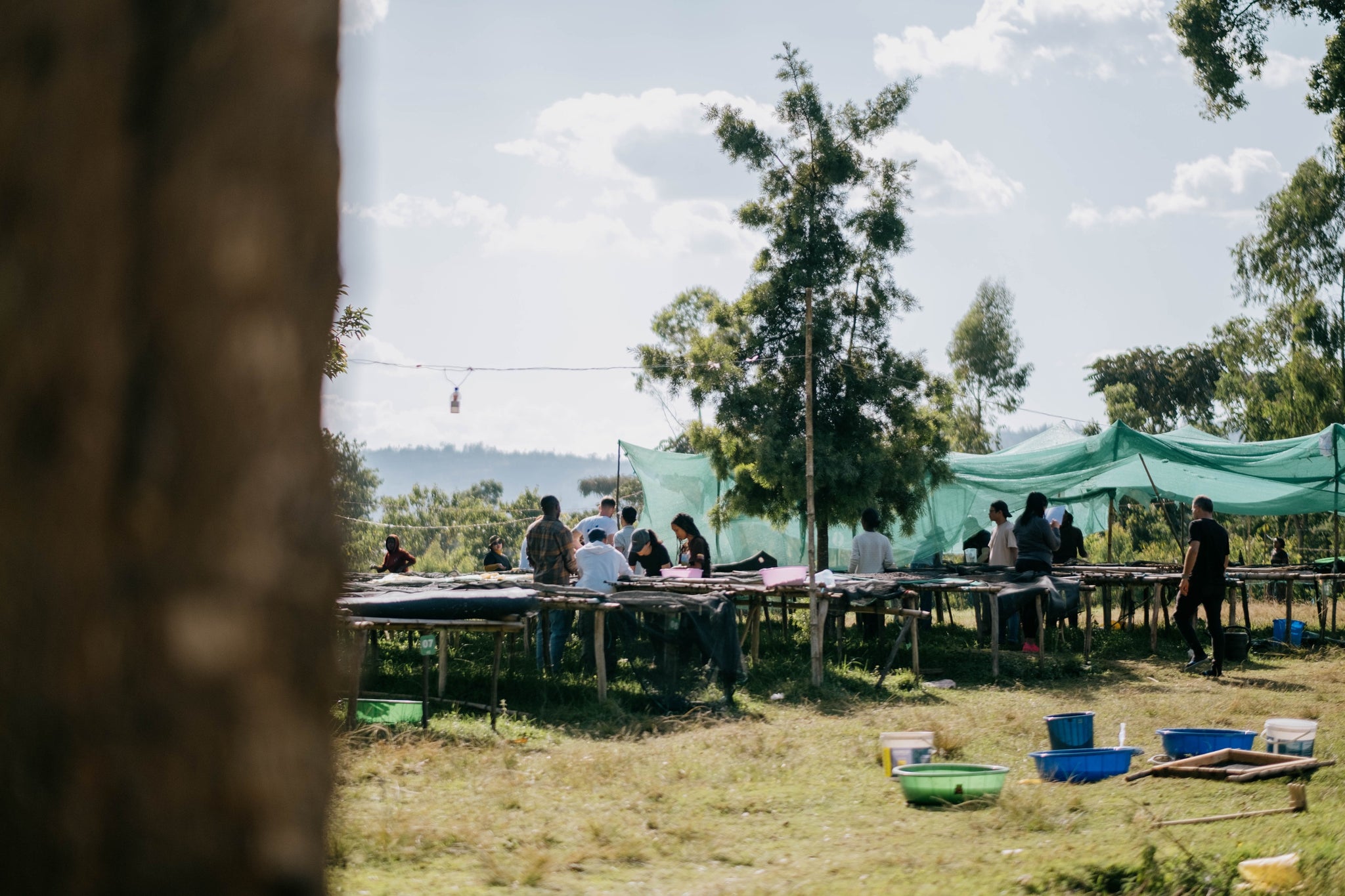
As reinforced in the course, fermentation and drying are the phases of post-harvest processing with the most substantial influence on flavor potential development and, ultimately, final green bean quality.
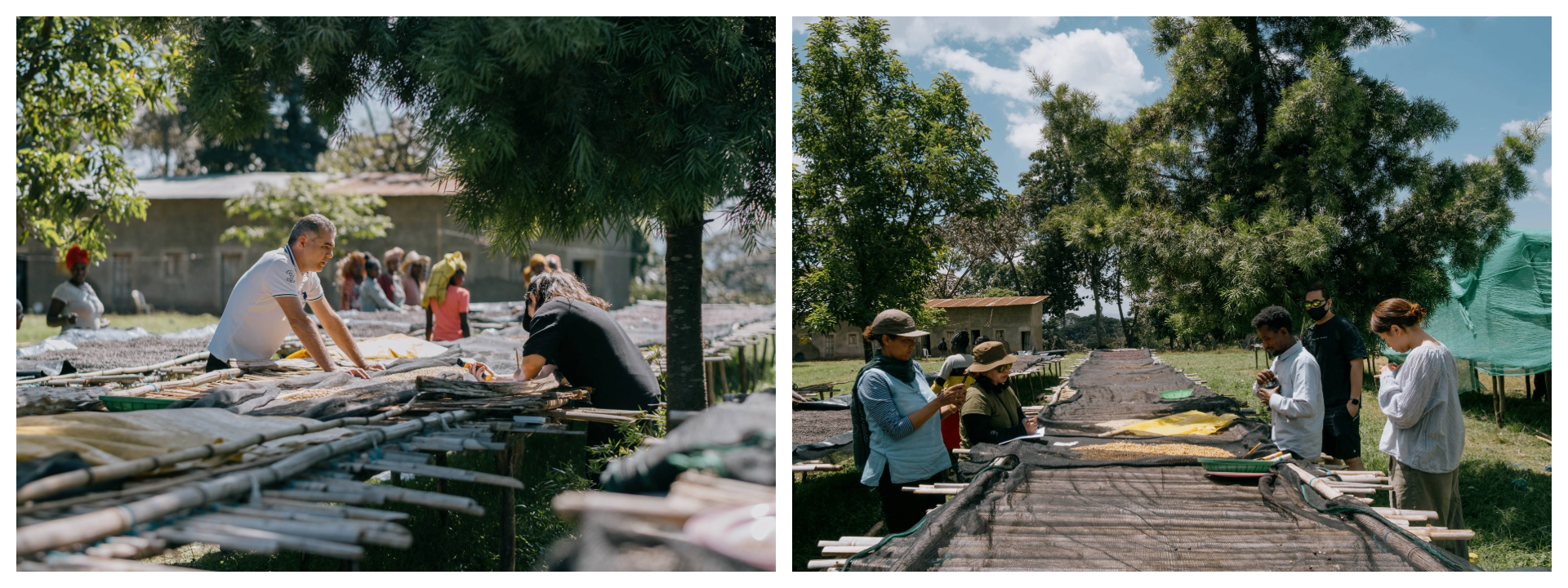 As recounted in her journal by our Patricia Perello and captured in snippets by our David Disuanco with help from Anatoly Korostelov, hands-on activities throughout the week encompassed the following:
As recounted in her journal by our Patricia Perello and captured in snippets by our David Disuanco with help from Anatoly Korostelov, hands-on activities throughout the week encompassed the following:
- floating and sorting as crucial quality checkpoints
- steps in fermentation and drying, as per the specific techniques
- routine monitoring of critical parameters, e.g. temperature, pH, and moisture
- comparative and blind cupping (multiple sessions for different purposes), e.g. process association, identification of defects
- cherry-to-parchment conversions
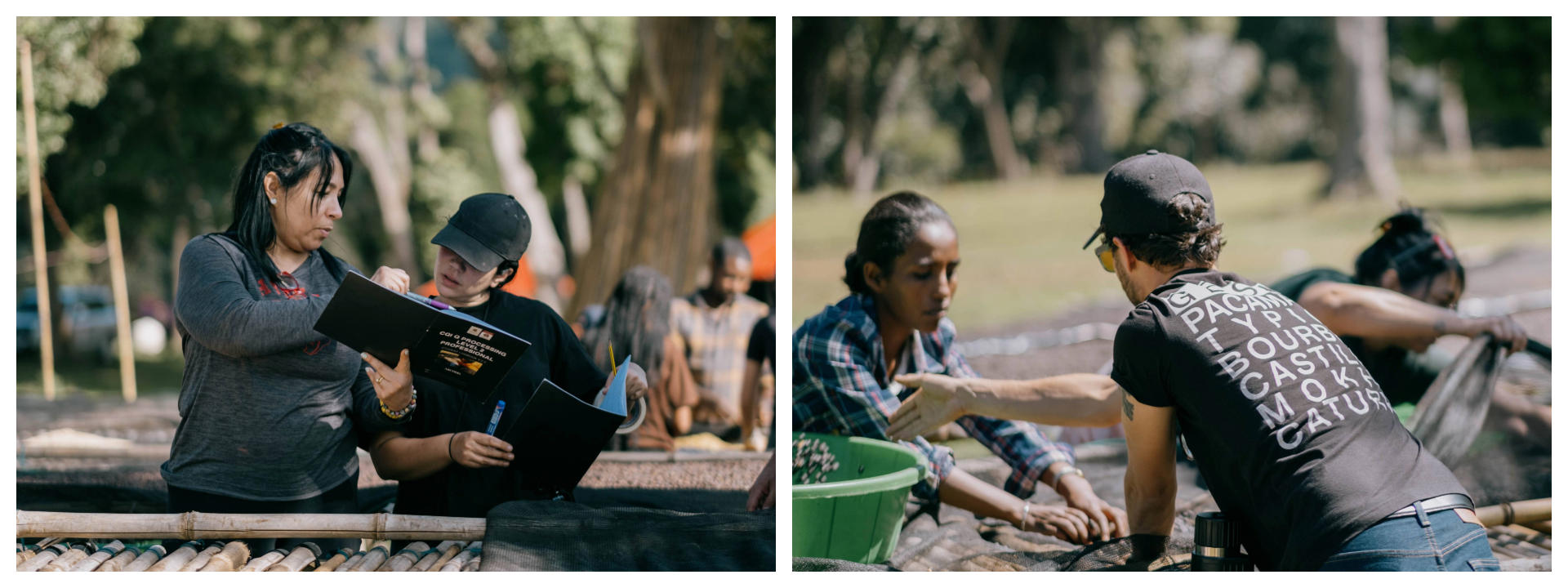 Important conversations ensued around practical measures to prevent processing defects, best practices in storage and dry-milling, and the pressing challenges and future trajectories of coffee processing, in between ongoing lectures and the conduct of the certification exams, until the program drew to a close and it was time to part ways.
Important conversations ensued around practical measures to prevent processing defects, best practices in storage and dry-milling, and the pressing challenges and future trajectories of coffee processing, in between ongoing lectures and the conduct of the certification exams, until the program drew to a close and it was time to part ways.
Transformative Takeaways, Springboard for Exploring More
At Archers, our passion for unlocking a coffee’s full flavor potential is congruent with our commitment to empowering every coffee person as they strive to become their best self through their specialty coffee journey.
Watch this short yet insight-filled documentary capturing the energy and enthusiasm defining the week we spent at Daye Bensa Coffee's Gatta Farm in Sidama Bensa, Ethiopia.
Here we witness Q Instructor Bryce Castleton's and then Q Processing Professional aspirants' faces light up as they take their turn to speak to us. Whose insights resonate the most with you?
We’re honored, that then Q Processing Professional aspirants have so generously shared testimonials of the course meeting their expectations, and affirming their recognition of clear and immediately applicable takeaways, which are also a springboard for deeper inquiry into specialty coffee.
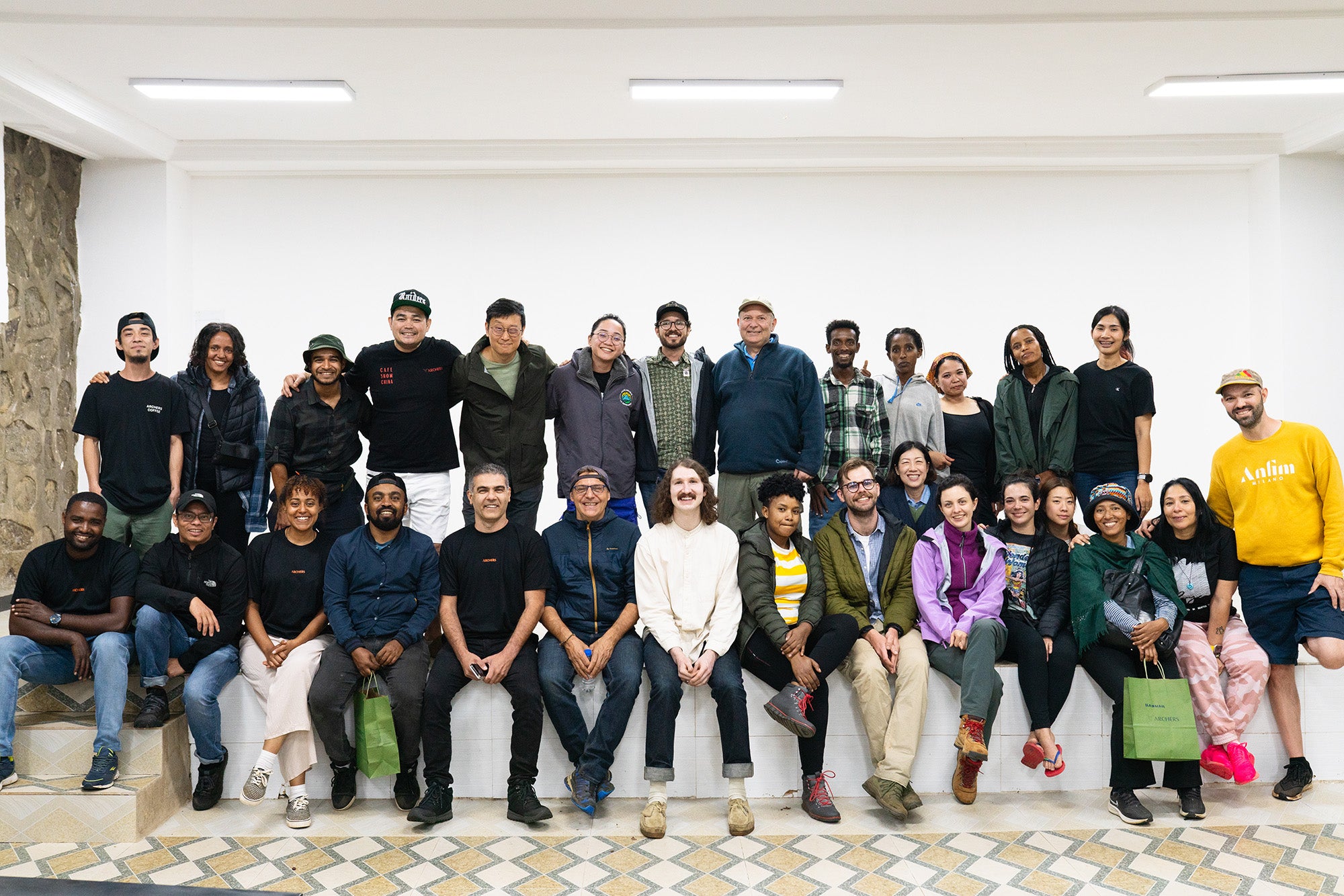
We’re also grateful to have earned the trust of lifelong specialty coffee learners for allowing us to follow through on our commitment to uplift our community and advance our industry with every successful run of Archers Academy educational programs like the recently concluded Q Processing 2: The Professional.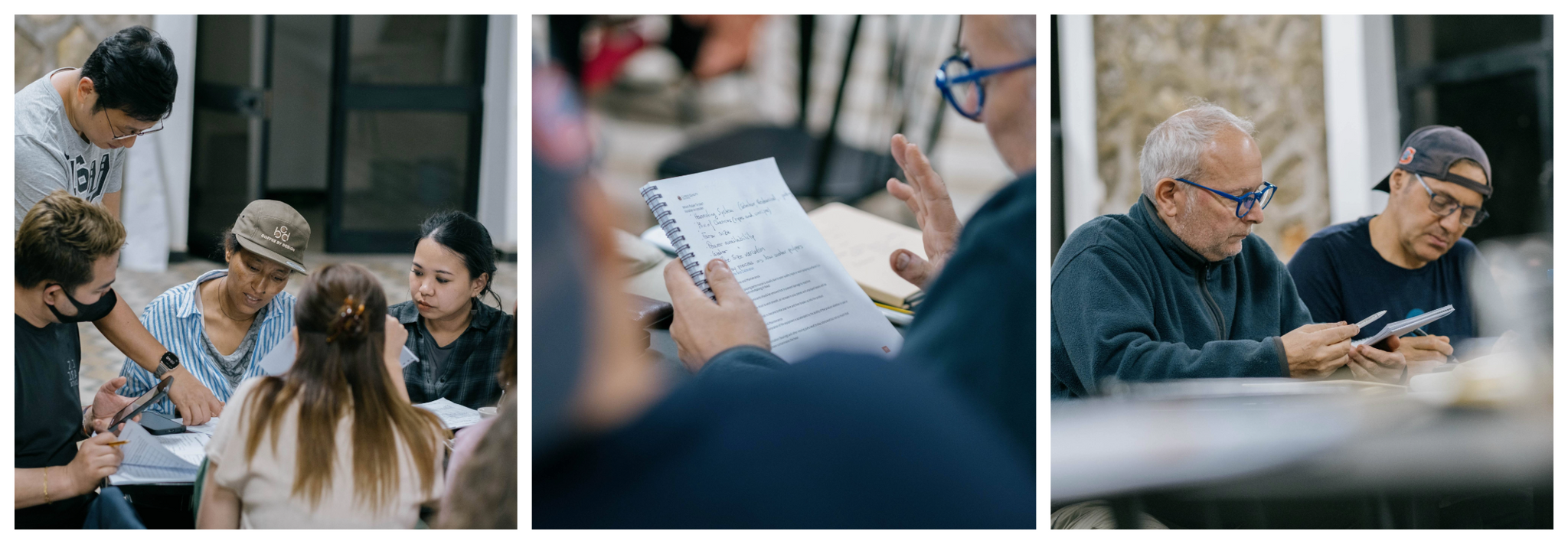
As we were leaving for home, we realized that by participating in this course, beyond contributing to the CQI's mission of sustainably improving coffee quality and the lives of the people who produce it, we had likewise enhanced our lives and discovered other dimensions of our own potential — for example, around creative pursuits adjacent to our specialty coffee profession. 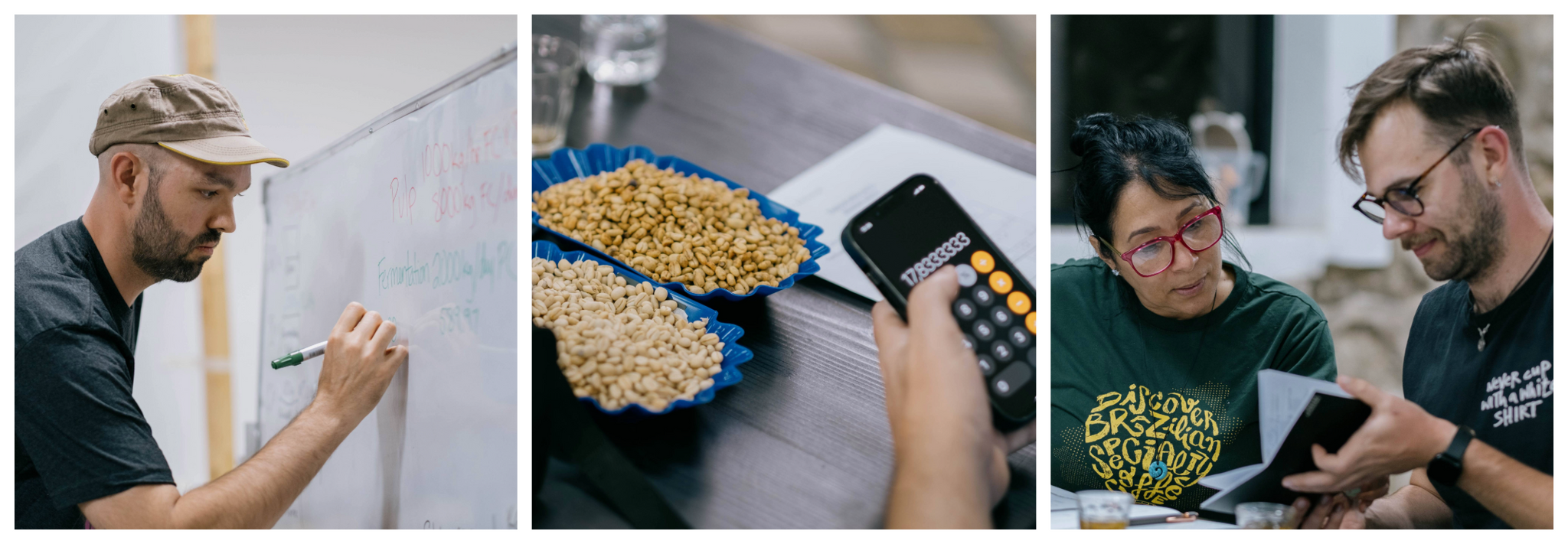
Case in point, our QP2 students’ cinematic recaps storytelling the experience from their points of view, like Zeyn Afuang's, as well as our very own Patricia Perello’s recalling the dreamy, uplifting, and idyllic atmosphere of picturesque Sidama Bensa and its beautiful, industrious, and vibrant folk.
On to the Next!
We agree — a vicarious experience of travel (through virtual recaps like this), especially to origin, only leaves us wanting the real thing. And while our next trip to Ethiopia is still slated for next year, we will get to visit, immerse in the culture, and learn about coffee together in another African origin country — Rwanda — soon! Join us then?
